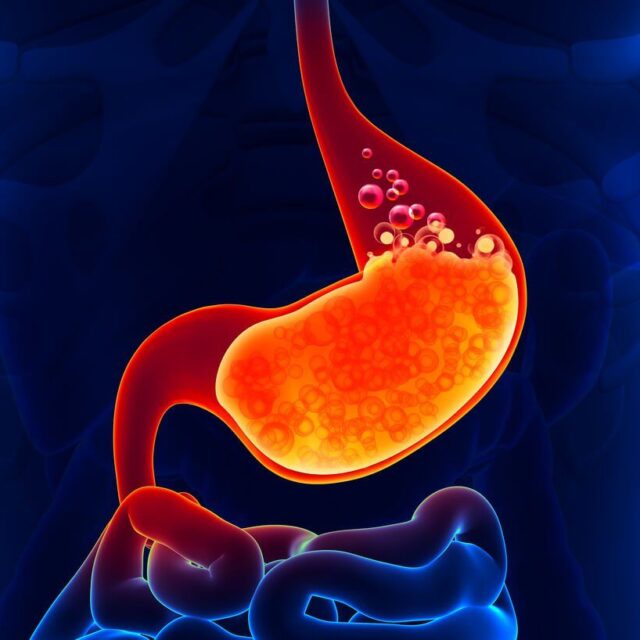
Acid Reflux Treatment in Hyderabad
Acid reflux, also known as gastroesophageal reflux disease (GERD) when it becomes chronic, is a common digestive condition that affects thousands of people every day. It occurs when stomach acid frequently flows back into the food pipe (esophagus), causing discomfort and other complications. If left untreated, acid reflux can seriously affect your quality of life.
If you are looking for the best acid reflux treatment in Hyderabad, our team of experienced gastroenterologists and surgeons provides comprehensive care, advanced diagnostics, and effective treatments tailored to your needs.
What Is Acid Reflux?
Acid reflux happens when the lower esophageal sphincter (a small muscle at the bottom of the esophagus) does not close properly, allowing stomach acid to flow back upward. Occasional reflux is common, but frequent episodes may indicate GERD.
Common Symptoms of Acid Reflux
- Burning sensation in the chest (heartburn)
- Sour or bitter taste in the mouth
- Difficulty swallowing or a lump-like feeling in the throat
- Regurgitation of food or liquid
- Chronic cough, sore throat, or hoarseness
- Chest discomfort, especially after meals or at night
Causes and Risk Factors
- Eating large, fatty, or spicy meals
- Excessive caffeine or alcohol consumption
- Smoking
- Obesity or pregnancy (increased abdominal pressure)
- Hiatal hernia
- Certain medications (painkillers, sedatives, etc.)
Diagnosis of Acid Reflux
Our specialists use advanced diagnostic tools to confirm GERD and rule out other conditions:
- Endoscopy (Upper GI Scope) – to examine the lining of the esophagus
- pH Monitoring – measures acid levels in the esophagus
- Esophageal Manometry – checks esophageal muscle function
- X-ray / Barium Swallow Test – identifies structural abnormalities
Acid Reflux Treatment in Hyderabad
We offer a wide range of treatment options depending on the severity of your condition:
- Lifestyle Modifications
- Eating smaller, balanced meals
- Avoiding spicy, fried, and acidic foods
- Weight management and quitting smoking/alcohol
- Elevating the head while sleeping
- Eating smaller, balanced meals
- Medications
- Antacids for quick relief
- H2 blockers and proton pump inhibitors (PPIs) to reduce acid production
- Prokinetic agents to improve digestion and stomach emptying
- Antacids for quick relief
- Minimally Invasive & Surgical Options
- Endoscopic treatments for selected patients
- Laparoscopic Nissen Fundoplication – the gold-standard surgery for GERD, where the top part of the stomach is wrapped around the esophagus to strengthen the valve
- Other advanced surgical options depending on patient condition
- Endoscopic treatments for selected patients
Why Choose Us for Acid Reflux Treatment in Hyderabad?
- Experienced Gastroenterologists & Surgeons with years of expertise
- Modern diagnostic facilities for accurate detection
- Comprehensive treatment – lifestyle advice, medicines, endoscopy, and surgery
- Minimally invasive techniques for quicker recovery
- Personalized care and long-term follow-up support
Recovery & Long-Term Care
- Most patients experience significant relief within weeks of starting treatment.
- Surgical patients usually recover in 1–2 weeks and can resume normal life soon after.
- Long-term care includes healthy eating, weight control, and regular follow-up visits.
Conclusion
Acid reflux is treatable, and early care ensures faster relief and prevents complications. If you are experiencing persistent heartburn, indigestion, or chest discomfort, don’t ignore it. Visit us for the best acid reflux treatment in Hyderabad and get back to living comfortably.
Contact us today for a consultation with our specialists Dr Harish
FAQs
What is acid reflux and how is it different from GERD?
Acid reflux is when stomach acid flows back into the esophagus, causing heartburn. GERD (Gastroesophageal Reflux Disease) is a chronic and more severe form of acid reflux.
When should I see a doctor for acid reflux?
If you experience frequent heartburn (more than twice a week), chest discomfort, difficulty swallowing, or persistent cough, consult a gastroenterologist.
What is the best treatment for acid reflux in Hyderabad?
Treatment depends on severity. It may include lifestyle changes, medications (like PPIs), endoscopic therapies, or minimally invasive surgery such as laparoscopic Nissen fundoplication.
Can acid reflux be permanently cured?
Many patients get long-term relief with lifestyle modifications and medication. In severe cases, surgery provides a more permanent solution.
How much does acid reflux treatment cost in Hyderabad?
The cost depends on diagnostic tests, medications, and whether surgery is required. We provide transparent pricing and assist with insurance coverage.









